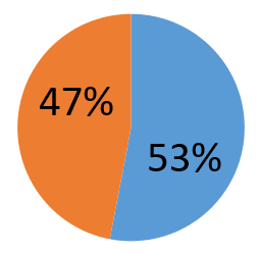Background
Over the years, there has been an assumption that the negative impacts of climate change and the efforts to mitigate them have similar effects on both women and men. However, the world has progressively recognized that women and men experience climate change differently, and that gender inequalities worsen women’s adaptive capacity. It has also been acknowledged that women are important actors of change and holders of significant knowledge and skills related to adaptation, mitigation and the reduction of risks in the face of climate change.
This makes them crucial agents of change, yet they have the least input in planning, policy development and decision making. In the light of the implementation of the Paris Agreement and Sustainable Development Goals (SDGs), it’s important to equip the women leaders who have been engaged in the process to be able to lay good strategies on how to increase their participation in climate change dialogue processes.
Description
The methods adopted in the implementation of the project were Consultative Roundtable and Facilitative Dialogue. These approaches entailed gathering, sharing and making use of existing information and resources on gender and climate change such as case studies, research findings, sharing compelling and evidence-based stories to inspire changes in policy and practice. It also entails the use of role play, group works, presentations, discussion, game theory, stakeholder mapping and power dynamic with sphere of influence and impacts using elements of Social Analysis System (SAS2) tools.
This approach was effective because it enhanced facilitation of exchange of diverse knowledge and perspectives on gender and climate change at national and regional levels and which group is impacted and their corresponding level of influence to cause change. The project contributed to increased understanding of the role of women and men in climate change negotiations in the implementation of Paris Agreement as well as enhanced understanding of the state of play on gender in climate change negotiations.
At a post project meeting it was rated useful and very useful to rise and analyse the gender responsiveness related to climate change and decision making.

Impact
Increased the level of women participation: in climate change dialogue processes with enhanced understanding of gender differentiated impacts of climate change; presence of women in higher organisational levels and; larger contribution of women in terms of content generation/input in the decision-making processes.
The number of men and especially women in Kenya’s delegation to both national and international climate change negotiations/meetings had increased since 2017 and some the women beneficiaries of this project are now active part of climate negotiations and meetings.
Lessons learned
A good gender gap analysis and observation of the trends in climate change negotiations at national and international level play key roles in designing a tailor-made interventions/action that contributes to narrowing the gender inequalities in the climate change negotiations. A well-designed project intervention that empowers small group of people can catalyse greater actions and cause positive change beyond the project lifespan.
*Reference: Ogallah, S.S. (2022): Enhancing Gender Responsiveness in Climate Change Dialogue Processes in Kenya, to be published.